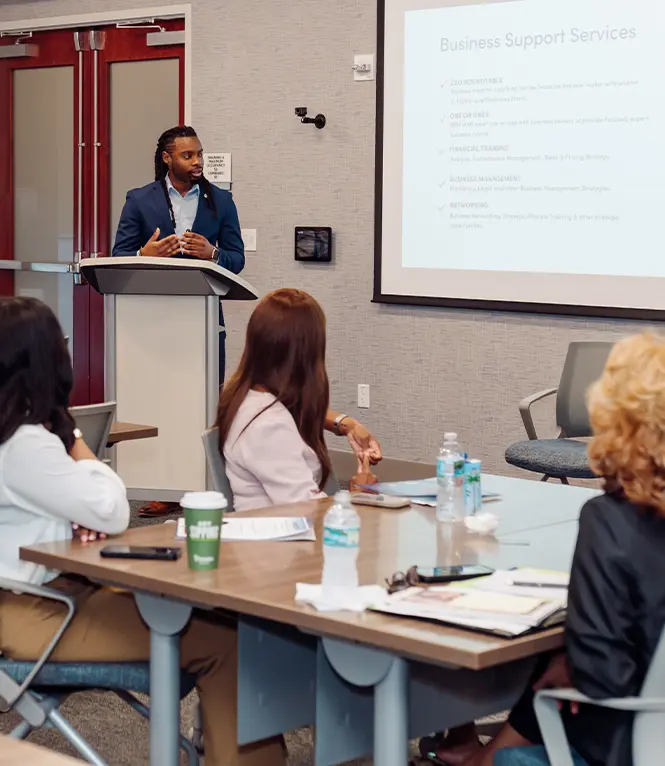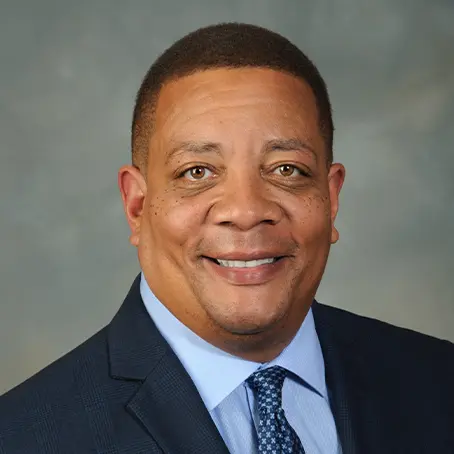Programs and Client Services
Overview
Programs and client services professionals bridge capital and capacity. They deliver technical assistance, strategic guidance, and training to help borrowers and community members succeed — whether preparing for a loan, strengthening operations, or sustaining long-term impact.
Unlike traditional financial institutions that focus primarily on transactions, CDFIs combine capital with education and partnership. Practitioners may coach entrepreneurs to become loan-ready, work alongside borrowers to maximize the impact of financing, and design programs that help individuals, households, and organizations manage financial challenges with confidence.
Certified CDFIs are required by the CDFI Fund to provide development services — structured training, counseling, or technical assistance that strengthens a borrower’s ability to access and use financial products effectively. These services take many forms: one-on-one coaching, group workshops, peer learning, or collaborations with community partners. By offering this blend of financial and programmatic support, CDFIs build trust, expand opportunity, and help ensure long-term borrower success.

What Do Programs Practitioners Do?
- Design and facilitate programs. Deliver workshops, training, peer learning sessions, and events that strengthen client and borrower capacity.
- Create educational resources and tools. Develop guides, curricula, and materials that help clients navigate financial systems and strengthen their organizations.
- Provide technical assistance and coaching. Offer one-on-one or group advising to prepare clients for capital, strengthen operations, or maximize impact from loans.
- Develop strategic collaborations. Cultivate relationships with community organizations, anchor institutions, and public/private partners to expand available resources.
- Manage partnerships with service providers. Identify, vet, and coordinate external consultants or organizations to deliver specialized expertise.
- Support ecosystem building. Collaborate with nonprofits, small businesses, and community-based organizations to create a stronger, interconnected community development system.
- Track program impact and build feedback loops. Collect data on participation and outcomes, evaluate effectiveness, and use insights to refine program design and delivery.
Key Skills and Sample Job Titles
Relationship Building
Programs staff build trust with clients and borrowers, often working closely with them over time. Strong relationship skills help foster engagement, encourage honest dialogue, and connect clients to resources that meet their needs.
Communication Skills
Practitioners translate complex financial or operational concepts into practical, accessible guidance. Whether facilitating a training, drafting a resource, or coaching a client, clear and empathetic communication ensures clients feel supported and empowered.
Program Design & Facilitation
These professionals are educators as much as advisors. Skills in curriculum design, workshop facilitation, and adult learning practices are critical for creating engaging, effective programs that help clients achieve their goals.
Data & Evaluation
Programs staff track outcomes and feedback to measure effectiveness, improve program design, and demonstrate impact to funders and partners. Strong skills in data collection, analysis, and reporting are increasingly important.
Sample Job Titles
- Chief Program Officer
- Senior Vice President, Programs & Partnerships
- Vice President, Development Services
- Director of Client Support Services
- Business Development Officer
- Counselor
- Business Coach
- Training Manager
- Programs Associate
- Community Engagement Associate



